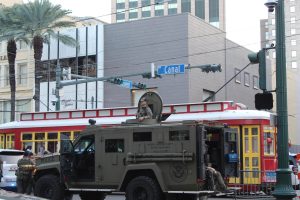Tulane tops list of schools producing Peace Corps volunteers
March 7, 2016
Many Tulane graduates are opting to work overseas, and many of them choose to do so through the Peace Corps.
For the second consecutive year, Tulane is among the top Peace Corps volunteer-producing graduate schools, according to a list recently published by the organization. Among medium-sized universities, Tulane ranked twelfth for undergraduates joining the United States’ leading international service organization.
“I think the Peace Corps’ mission to promote cultural exchange through international public service resonates clearly with the interests Tulane students show in activities like study abroad and public service,” Associate Dean for Global Education Scott Pentzer said. “Peace Corps offers a way to deepen those commitments even further after graduation.”
Tulane offers a few specific programs for students interested in joining the Peace Corps, such as the Masters International Program, a program within the graduate school of Public Health and Tropical Medicine. MIP students spend three to four semesters in New Orleans earning their masters degree in public health before leaving to serve in a country assigned to them by the Peace Corps.
While abroad, the students write quarterly reports and work on a practicum project they present upon their return. The program also offers a variety of preparation before students depart, including language classes, as well as a community for returned Peace Corps volunteers to readjust to American life together.
Alexandra Ernst, a 2013 alum of the Masters International Program who is currently serving in a Peace Corps program in Mozambique, credited Tulane for her positive experience abroad.
“Tulane academically prepared me by challenging my intellect and building up my skill set,” Ernst said. “The [Returned Peace Corps Volunteers] community, consisting of both fellow students and professors alike, helped me prepare mentally and emotionally for the 27 months of service.”
Last year, Tulane admitted its first class of sophomores into its Peace Corps Prep Program. The program requires students to study abroad, complete courses in accordance to Peace Corps preparation, and interact with returned Peace Corps Volunteers.
Ernst said that a key part of both New Orleans and the Peace Corps is learning to be a member of a distinctive community, and then realizing what that community can achieve.
Katie Kampa, a co-cordinator of the Masters International Program, echoed the sentiment that spending one’s college years in New Orleans can be both inspiration and preparation for the Peace Corps.
“The reality … is that there are numerous issues related to poverty, a high burden of disease and the inequities of access to quality education and healthcare services [in New Orleans],” Kampa said. “As a college student in this type of setting, there’s real potential to get involved in hands-on work and make a huge impact.”









Leave a Comment